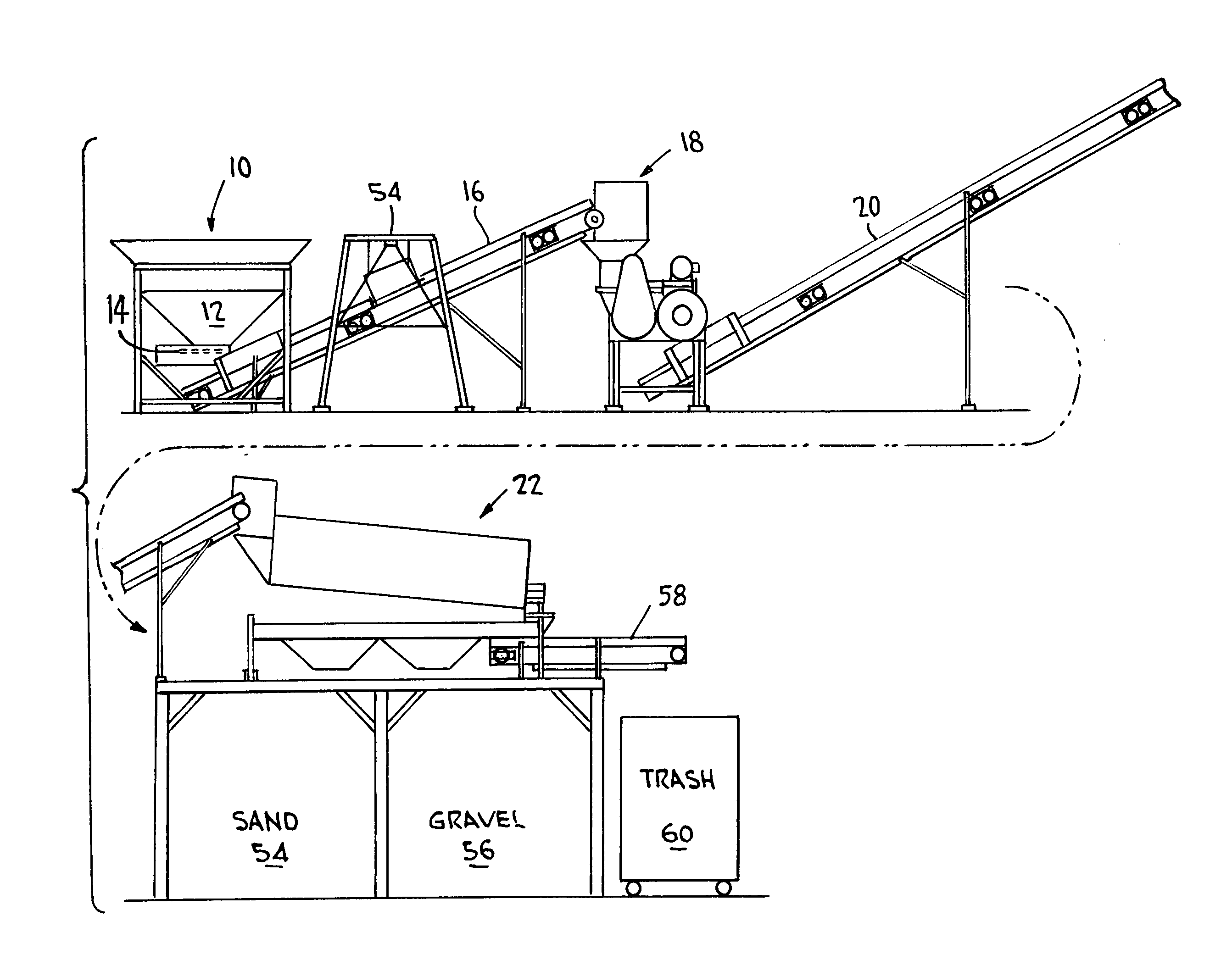Production of glass powder from waste glass, and products made using the same, especially concrete
a technology of waste glass and production method, which is applied in the field of production of waste glass powder and products made using the same, especially concrete, can solve the problems of post-consumer waste glass being produced, contaminated with various foodstuffs and chemical residues, and unable to meet the needs of industrial production and use,
- Summary
- Abstract
- Description
- Claims
- Application Information
AI Technical Summary
Benefits of technology
Problems solved by technology
Method used
Image
Examples
Embodiment Construction
[0028]Reference will now be made in detail to the preferred embodiments of the invention, examples of which are illustrated in the accompanying drawings. While the invention will be described in conjunction with the preferred embodiments, it will be understood that the description is not intended to limit the invention to those embodiments. On the contrary, the invention is intended to cover alternatives, modifications, and equivalents, which may be included within the sprit and scope of the invention as defined by the appended claims.
[0029]As noted above, the present invention relates to a new and improved process for producing glass powder suitable for a wide range of uses from post-consumer waste glass and other waste glass as may be available, to the powder produced thereby, to the equipment for practicing the process, and to the end uses of the powder thus produced. Accordingly, the invention allows a portion of the least recyclable waste glass stream, that of mixed-color broke...
PUM
| Property | Measurement | Unit |
|---|---|---|
| pre-set time | aaaaa | aaaaa |
| size | aaaaa | aaaaa |
| particle size | aaaaa | aaaaa |
Abstract
Description
Claims
Application Information
 Login to View More
Login to View More - R&D
- Intellectual Property
- Life Sciences
- Materials
- Tech Scout
- Unparalleled Data Quality
- Higher Quality Content
- 60% Fewer Hallucinations
Browse by: Latest US Patents, China's latest patents, Technical Efficacy Thesaurus, Application Domain, Technology Topic, Popular Technical Reports.
© 2025 PatSnap. All rights reserved.Legal|Privacy policy|Modern Slavery Act Transparency Statement|Sitemap|About US| Contact US: help@patsnap.com



